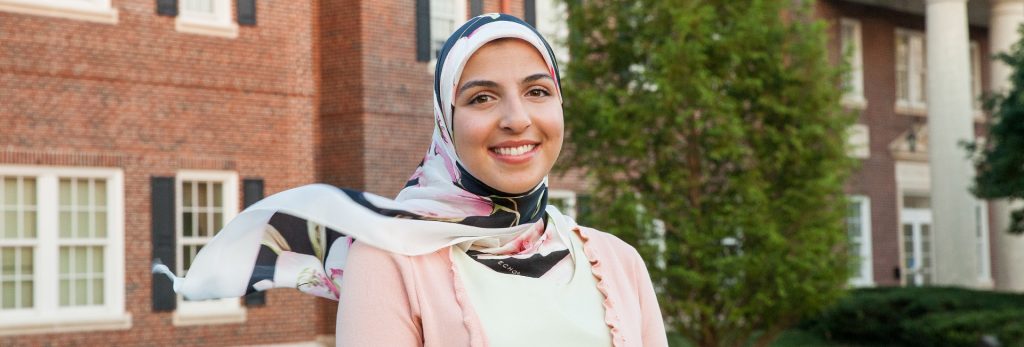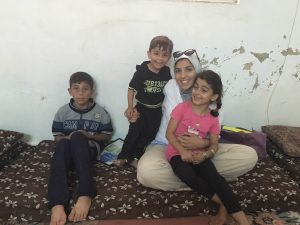
“I’d never felt more eager to do something than in that moment, sheltered in the library,” says the senior psychology major. “I wanted to hug that boy and let him know there are people out there who care. If somebody else is suffering, it’s my obligation as a Muslim, as a Muslim-American, and above all as a human being, to help.”
A few short months later, Ebady found herself at a mental health clinic in Irbid, Jordan, helping to administer therapy to other Syrian families through the Syrian-American Medical Society (SAMS), a humanitarian nonprofit that aids Syrians in need. Since the Syrian conflict began in 2011, SAMS has set up psychosocial clinics in neighboring countries like Jordan, where refugees can seek treatment from medical professionals.
There, she built relationships with the staff and their patients, shadowing the therapists and psychiatrists while participating in group-based therapy for women and children. In the process, she discovered the distressing conditions that Syrians have faced at home and abroad.
Learn More
On Tuesday, Nov. 1, at 12:30 p.m. in Education 113, Abrar Ebady will present on her internship with the Syrian American Medical Society. She will share stories of the survivors, and will discuss the issues with applying Western mental health treatments in a Middle Eastern Society.

“Even when fleeing to Jordan, they live an unstable life due to a lack of job opportunities, racism, dangerous neighborhoods, or a shortage of food and clothing,” she says. “There’s a cycle of emotional problems, and I think the people need some sort of coping mechanism.”
In turn, Ebady helped foster a sense of security for patients by leading workshops around post-traumatic stress disorder, as well as aggression and temper caused by the conflict.
While she plans to pursue a career in which she can always give back to others, Ebady believes the crisis unfurling in Syria requires our full attention now.
“The world is watching and doing little,” she says. “If I take the initiative to inform myself and others about the conflict, and if people around me take the same initiative, we’ll be a much more proactive society, more in the service of humanity.”
—Tom Kozlowski ’16
